2017-18
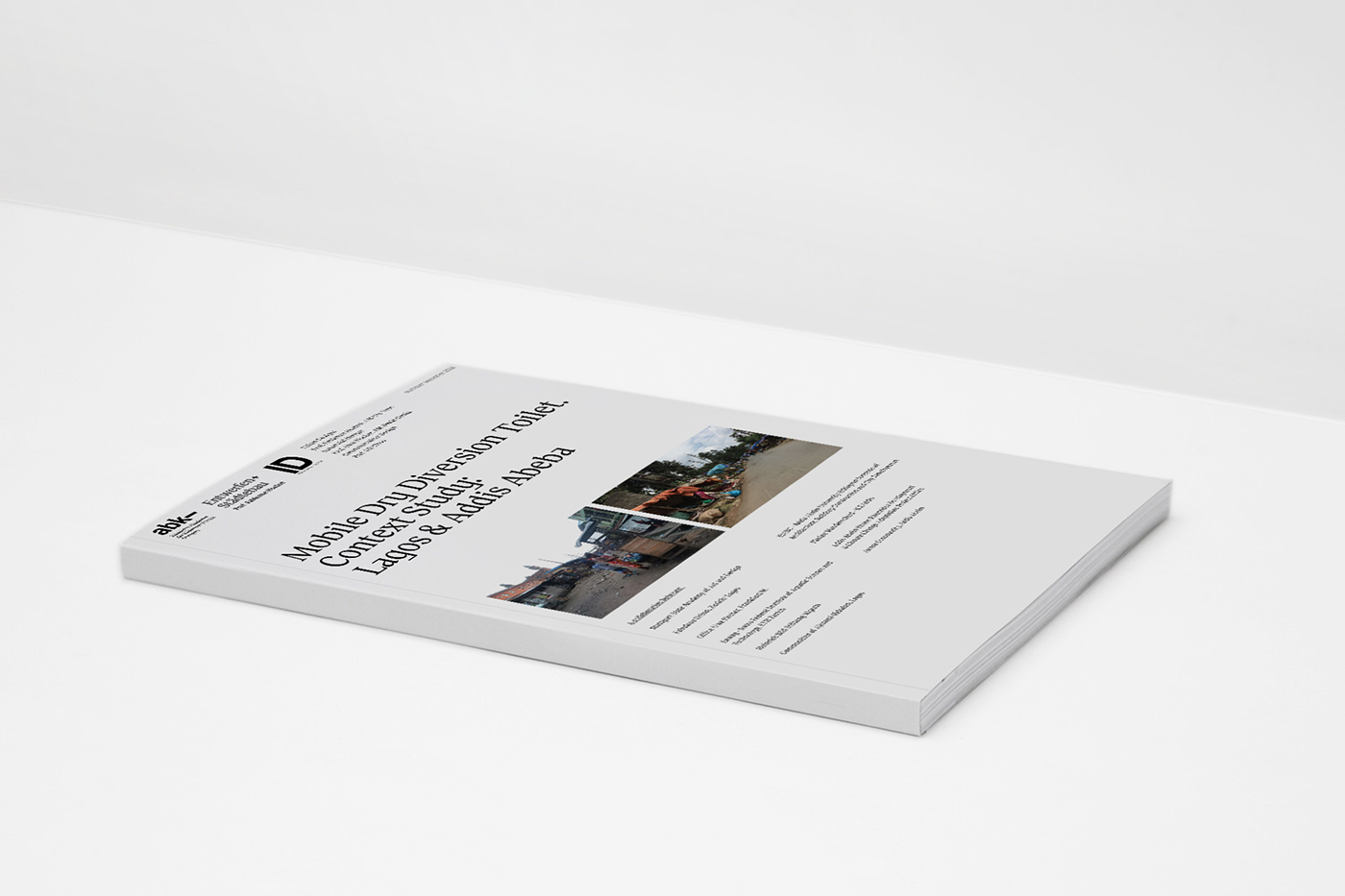
MOBILE DRY DIVERSION TOILET – CONTEXT STUDY
Worldwide, missing basic infrastructures – mainly lack of toilets and thus „open defecation“ – are one of the biggest problems. It leads to the spread of deadly diseases, with women and children being disproportionately affected. For this reason, a portable „Dry Diversion Toilet“ has been developed that does not require any additives, chemicals, technology or energy and a minimum of plastic (cradle-to-cradle principle).
The project’s aims have been the development of an affordable – final price around or below 500 EUR – as well as hygiene, safety, operation and maintenance including, self-explanatory, highly functional product design – i.e. „design nudging“: the (desired) behavior of the users is controlled by the design.
The project idea was developed in the context of the urban planning design studio in the summer semester 2017 for the urban regeneration of a slum in Lagos (Nigeria) and is based on the functional principle of an „earthworm compost toilet“. Since then, the project has been further developed by an interdisciplinary team of students. The final design of the prototype was developed by Office Uwe Fischer. It can be adapted to local conditions, for example regarding the material of the outer shell.
design + research
©️ All rights reserved.

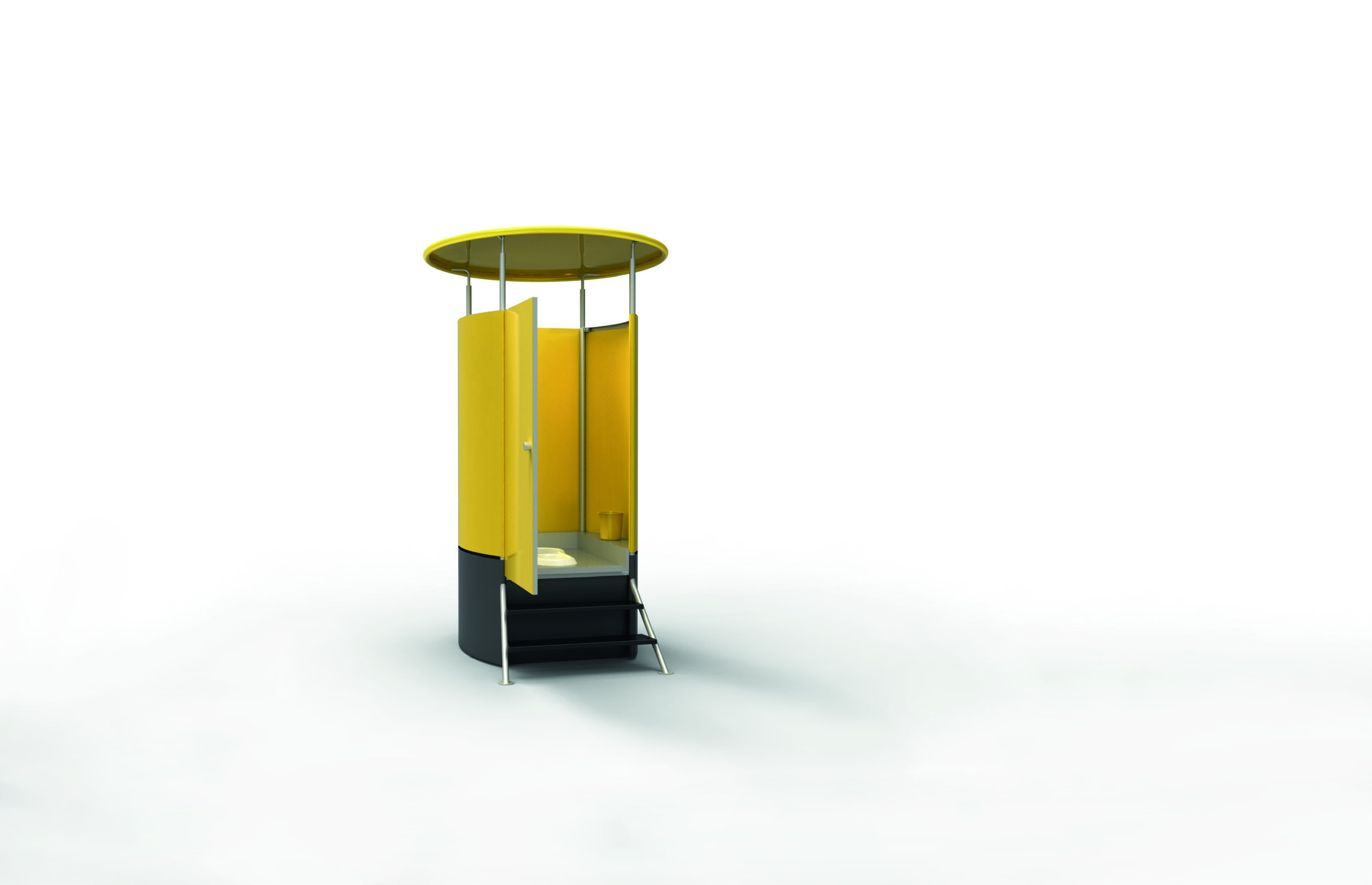
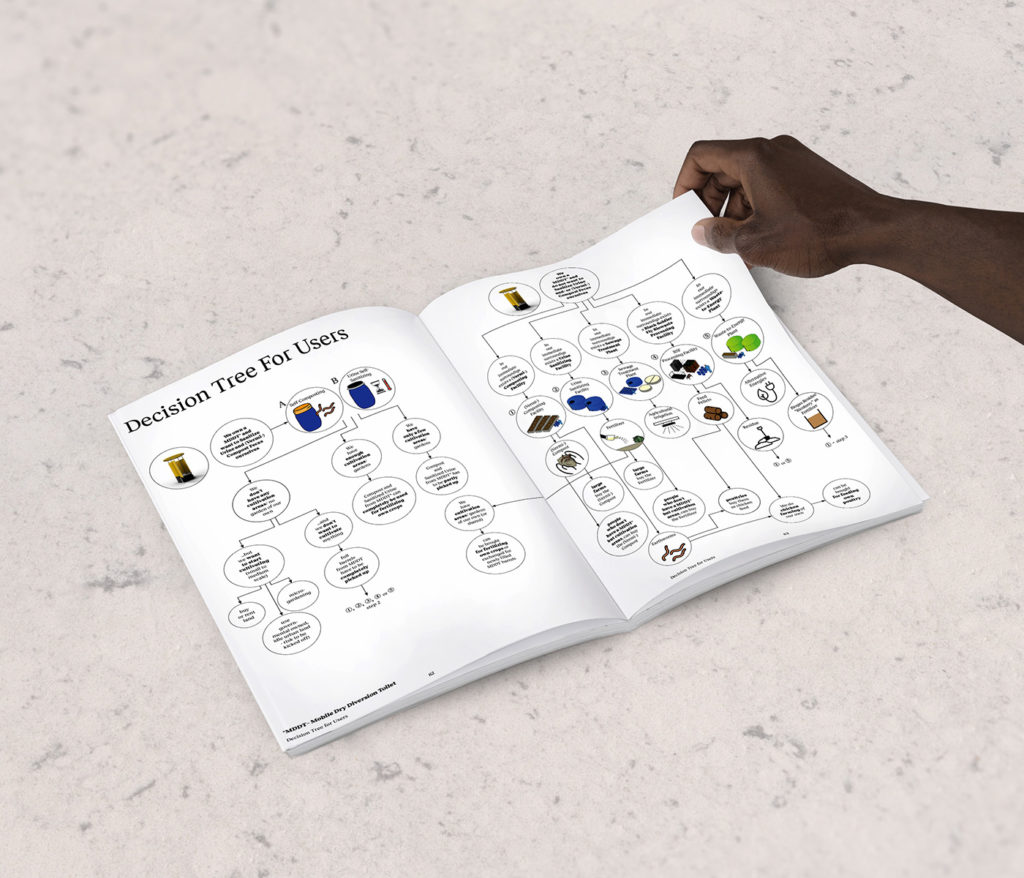
CONTEXT STUDY
Examination of implementation issues and local conditions in Nigeria and Ethiopia
This Context Study explores possible processing- and governance methods, and examines specific conditions
in Lagos (Nigeria) and Addis Abeba (Ethiopia).
The research- and analysis task of the Context Study was to outline different possible implementation scenarios for the „Mobile Dry Diversion Toilet“ and show the benefits it can bring to communities.
VERMICOMPOSTING TOILETS
Principles of permanently installed earthworm toilets, where feces are composted to soil using earthworms, have been under test for a few years in some Sub-Saharan African countries, with one of the unsolved problems being urine seeping into the ground daily. This project design counteracts this, as the urine is collected separately. Its recycling, for example for electricity production or sanitation and subsequent use as fertilizer, is also a major part of the research project. The separation of solids and liquids also speeds up the composting process of fecal matter.
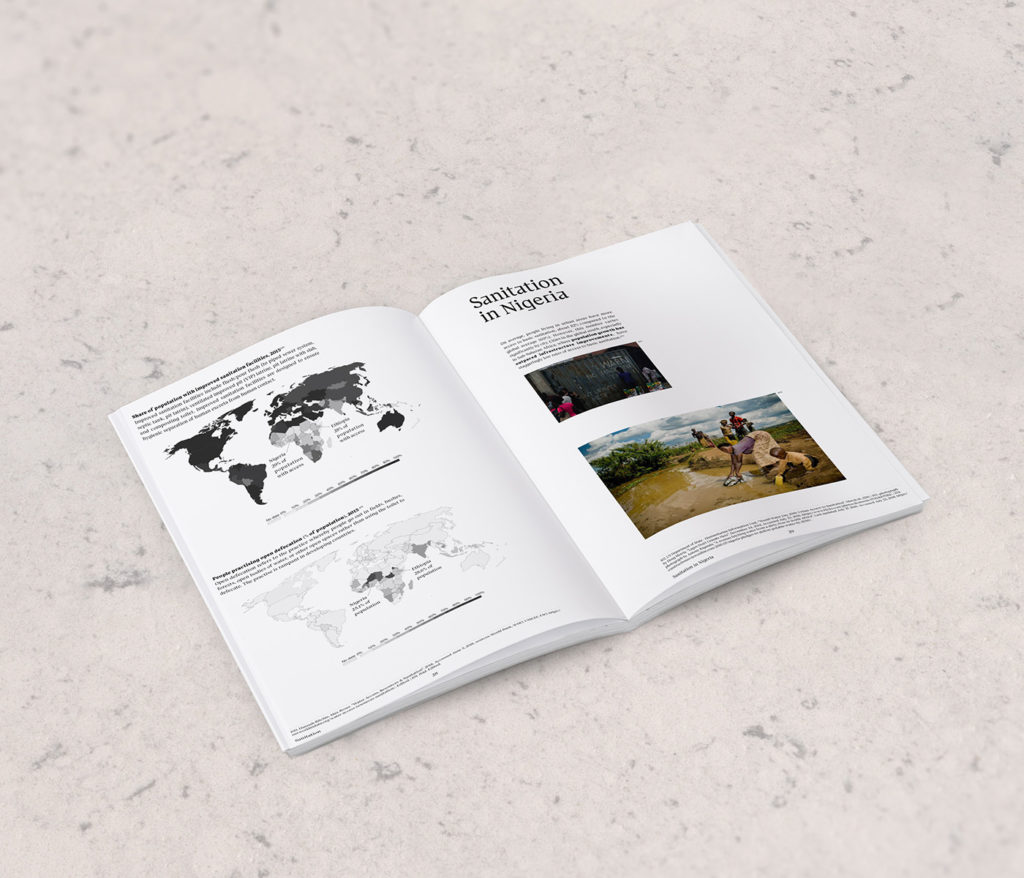
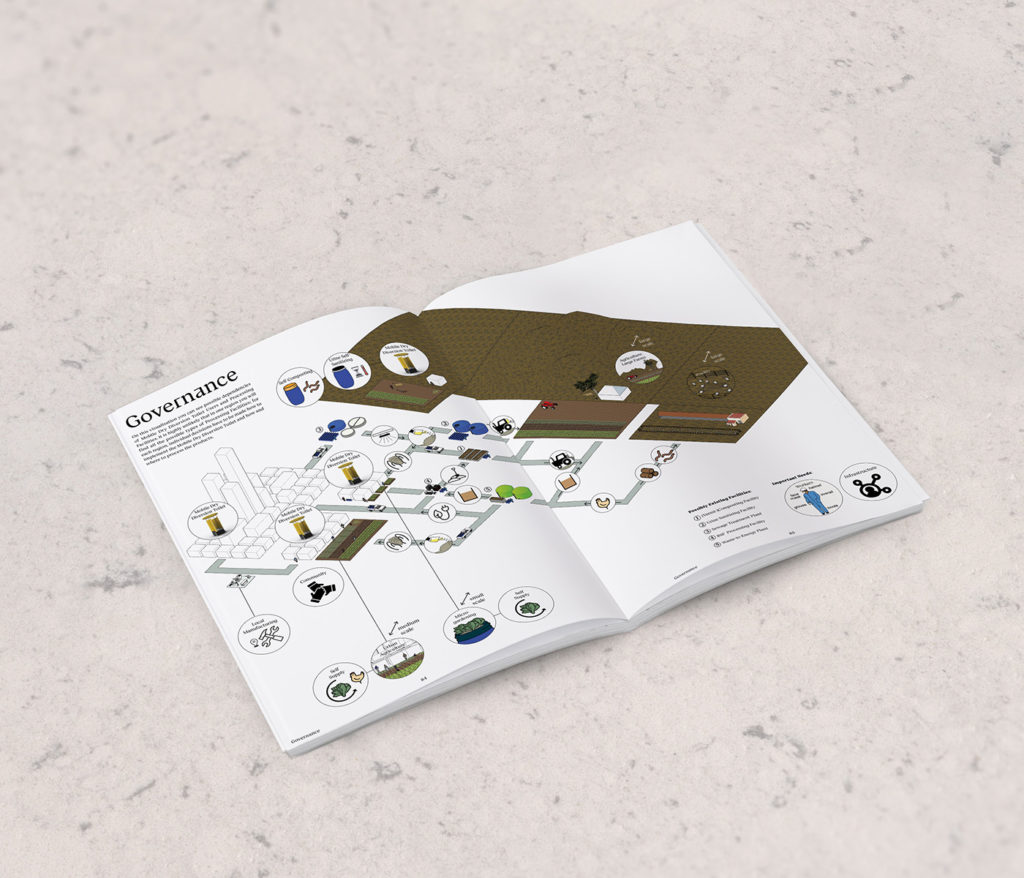
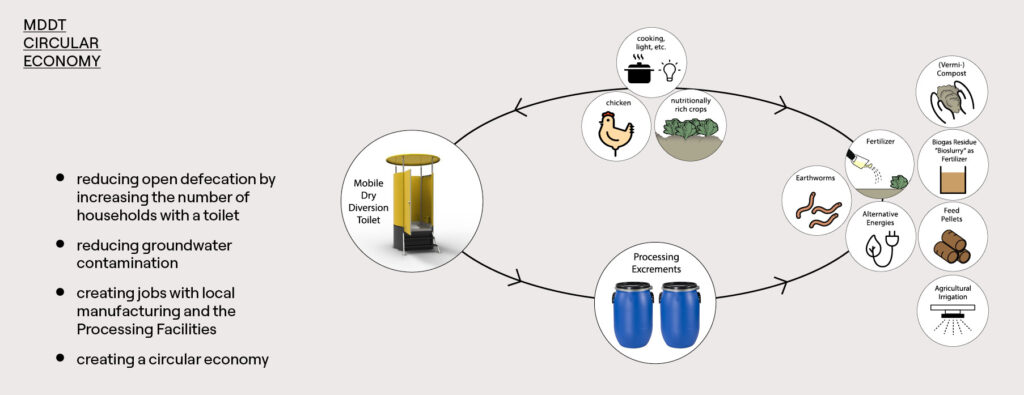
CIRCULAR ECONOMY
The aim of the Context Study was to have a catalogue of possible processing methods, which all conclude in valuable commodities which can be either used or even sold.
GOVERNANCE
Part of the Context Study was also to show which preparations have to be made for the implementation, for example how many
workers have to be found, which infrastructures have to be established, etc.
PROJECT
inter- and transdisciplinary project
STUTTGART STATE ACADEMY OF ART AND DESIGN
Urban Design:
Prof.in Fabienne Hoelzel
Lucia Schreiber, Beatrice Bucher
Industrial Design:
Prof. Uwe Fischer
Dipl.-Des. Bastian Müller (AM)
Robin Wesch, Simon Gehring, Tobias Lenk, Melissa Acker
Communication Design:
Prof. Uli Cluss, Niklas Berlec
PARTNERS
Fabulous Urban, Zurich/ Lagos
Office Uwe Fischer, Frankfurt/M.
Eawag – Swiss Federal Institute of Aquatic Science and Technology, ETH Zurich
Heinrich Böll Stiftung Nigeria
Communities of Ajeromi-Ifelodun, Lagos
Addis Abeba Rivers Riversides Development & Climate Change Adaptation Project Office
ICEAddis
Aware community, Addis Abeba